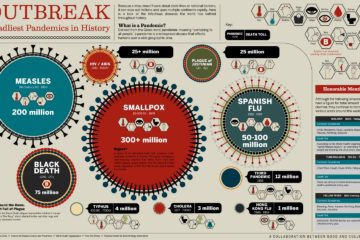Suraj works near where this protest took place! He knew I’d be interested because I’m quite ‘green’ and I am also vegan. Thus it ticked a couple of boxes for me. More importantly it’s something I wasn’t aware of so I’d be sure to write about it. Did you know that 18% of greenhouse gases are produced by animal farming?
Climate change protesters target London’s Smithfield Meat Market By Jon Swaine
Protesters from the climate camp at Kingsnorth power station have scaled London’s Smithfield Meat Market and unfurled a pro-vegan banner.
- Kent power station protest: Over 50 environmental activists arrested
- Four arrested over Kent power station protest
- ‘All is lost on global warming unless we find new clean coal technology’
Four activists – two men and two women – have climbed the entrance to the historic north London market.
The two men, who are stationed at the very top of the Victorian complex, have displayed a banner reading: “18% of greenhouse gases are produced by animal farming. Fight climate change – go vegan.”
Paul Jacobs, a spokesman for the protesters, said: “Climate change is one of the greatest and most imminent threats that we face, and animal faming’s role in that needs to be more widely known.
“A 2007 UN Food and Agricultural Organisation report found that livestock farming and industrial fishing currently accounts for 18 per cent of global greenhouse gas emissions. This is even more than the 13.5 per cent caused by transport.”
Mr Jacobs said that he and the four protesters on the market roof had come from the climate camp at Kingsnorth, Kent, where demonstrators attempting to block the opening of a new coal-fired power station clashed with police at the weekend.
He added: “We are asking the Government to provide information about farming’s role in the climate change, and to make it an issue.
“There has been no statement of the problem and the wider public have no idea of the statistics involved. All the major political parties claim to be addressing climate change issues, but none of them has addressed this part of it at all.
Smithfield, in Charterhouse Street, north London, has been the site of livestock trade for more than 800 years. It currently supplies butchers, shops and restaurants across the capital with meat and animal produce. Onlookers this morning said that meat traders, who work at the complex every morning from 4am to midday, were shouting abuse at the protesters.
A spokesman from the office of the Superintendent of Smithfield Market said: “We don’t have any comment to make. We’re just trying to deal with the people on the roof.”
Asked what action he and the protesters were requesting, Mr Jacobs said: “While we would like it if everyone adopted a vegan diet, we don’t believe in imposing ways of life on to people. But information should be given and policies considered that could encourage people to change, possibly including increased taxes on the production and consumption of animal products.”
In a pre-written statement, Clare Whitney, one of the activists, said: “An animal-based diet is no longer sustainable with climate change threatening the planet, its ecosystems, and the people who depend on them,”
I think this is amazing. Everything seems to be pointing to climate change at the moment but what are the powers that be doing about it? What are you doing about it?



4 Comments
Heena Modi · August 14, 2008 at 12:44 am
This website has a great article explaining the history of when humans started drinking milk from a species other than human. It also discusses the effects of this change.
http://www.govegan.de/we-are-weaned
peter · August 19, 2008 at 8:47 pm
A growing solution:
How Stockfree Organic farming systems can help combat climate change
Climate change is almost universally accepted as being caused by the release, through human activities, of greenhouse gases (GHG) into the atmosphere. Only professional deniers, funded by the fossil fuel lobby, and blinkered politicians, still doubt the science and mounting evidence of the human contribution to climate change. The earth’s current period of development has been coined the anthropocene’ – a time when virtually all planetary ecosystems are being affected by, and in many cases seriously degraded by human activity.
This statement explains what can be done.
Change without borders
Human-driven global warming threatens to destabilise climate systems across the entire planet. Climate change does not respect international borders. GHG emissions in the UK are already contributing to hardship, famine and death in undeveloped nations – those least equipped to deal with rapid environmental change. The United Nations Environment Programme warns of a growing threat of wars and conflict, as natural resources dwindle. Island communities face damaging sea level rises, glaciers are retreating at unprecedented rates, and sea ice at the poles is melting rapidly.
Ecosystems which have had aeons to adapt to natural and gradual climatic change now face upheaval within a century, or perhaps only decades. Species which share the planet with us are being forced to evolve rapidly in less time than the average human life span. For some this will be impossible.
To avoid runaway catastrophic climate change, industrialised nations must start making drastic cuts in their GHG emissions within the next decade. So far there is little evidence of emissions falling; in most cases they are rising, fuelled by increasing industrialisation, and by growth in transport.
Belching our way to climate chaos
Yet one human-driven activity is responsible for more global emissions of GHG than the world’s entire transport sector – livestock farming. Worldwide, livestock produce 18 per cent of the gases that cause global warming. One of these, methane, which is released when livestock such as cattle breathe out and burp’, has 23 times the global warming potential of carbon dioxide (CO2).
Air-polluting ammonia, a key catalyst in the formation of acid rain, and nitrous oxide, a powerful GHG with 296 times the global warming potential of CO2, are also generated through livestock production. Added to the fossil fuel used in growing and transporting feedstuffs, then moving the resultant products around the globe, the damage caused to ecosystems by livestock farming through deforestation and pollution poses a serious threat to life on earth.
The earth cannot produce enough animal products to feed its growing population at the level of the average western diet, yet demand for animal products is rising. We need to rethink the way in which we produce food, recognise its ecological implications, and adopt a more earth-friendly approach.
Climate-friendly, carbon neutral, and kinder
Stockfree Organic systems (SO), on a field, smallholding, or domestic scale use no animal inputs, synthetic chemical pesticides, genetically modified organisms, and minimal fossil fuels. Stockfree Organic farming seeks to minimise reliance on imported’ fertility through in situ composting of all plant wastes, by using living green manures as soil fertility builders, and by practising minimal soil disturbance or reduced tillage’ cultivation.
Food grown using SO systems is eaten locally and in season, so minimising food miles’, and is delivered with as little (reusable) packaging as possible. Food labelled with the Stockfree Organic Standards Symbol (which is inspected by the Soil Association) carries the ethical assurance that it has been grown to strict organic standards without any animal inputs.
Stockfree Organic farming is the greenest’, most ecologically sustainable and carbon neutral’ way of producing healthy food.
How can Stockfree Organic systems help slow down climate change?
– They don’t rely on synthetic fertilisers and weedkillers, pesticides and fungicides, all of which consume fossil fuels in manufacture, packaging and transport, releasing large quantities of CO2 and other airborne pollutants.
– No animal or fish by-products, or animal manures, are used to maintain soil fertility, which dissociates SO from all forms of livestock production, organic or otherwise. This reduces dependency on fossil fuels for importing, spreading and incorporating manures, and removes demand for livestock by-products e.g. as fertilisers. This adds ethical value’ to food grown in a SO system, guaranteeing it as from a cruelty-free growing method.
– Reduced tillage systems used in conjunction with SO help to maintain potentially the greatest carbon reservoir’ on earth – the soil. Exposing the soil to air, usually when it is ploughed, results in organic matter being lost to the atmosphere as CO2. Undisturbed soil, sown with a green manure, and with a thriving microbial ecosystem, locks up’ CO2 from the air, helping reduce atmospheric levels. Minimal cultivation reduces fossil fuel use.
– Where organic matter is brought in to boost soil fertility it is sourced locally e.g. from a green waste scheme, to minimise transport emissions. This also utilises a valuable local resource which may otherwise be dumped in landfill, where it generates the powerful GHG methane.
– Fossil fuel usage and subsequent release of the most abundant greenhouse gas CO2 is minimised or eliminated. Renewable energy sources – human, wind, solar and water power – are used wherever possible.
– Biodiversity is encouraged, helping maintain more stable local ecosystems, which are more resilient to seasonal and other fluctuations caused by human-induced climate change.
Eating within our limits
A growing number of SO growers and farmers are now established in the UK and around the world. SO techniques are tried, proven and economically viable. More and more gardeners are now adopting this sustainable and compassionate way of growing.
The Stockfree Organic approach offers a viable, holistic and accessible way of ensuring that present and future generations can live safely and comfortably, as well as eat abundantly, healthily and harmoniously within the earth’s finite limits.
A few quotes on the subject…
“Fossil fuel use in manufacturing fertilizer may emit 41 million tonnes of carbon dioxide per year.”
Livestock’s Long Shadow. Food and Agriculture Organisation of the United Nations, 2006
“The potential benefit of a vegan diet in terms of climate impact could be very significant.”
Leaked memo from the Environment Agency to Viva!, May 2007
“Livestock-related releases from cultivated soils may total 28 million tonnes of carbon dioxide per year.”
Livestock’s Long Shadow. Food and Agriculture Organisation of the United Nations, 2006
“Plants alone are the producers of food energy and of soil humus and all animals, including humans, are net consumers.”
Growing Green: Organic Techniques for a Sustainable Future
“…the earth is getting perilously close to climate changes that could run out of control.”
James Hansen, NASA Goddard Institute for Space Studies
“Each of us could make a bigger contribution to reducing emissions of greenhouse gases by becoming a vegan than by converting to an eco-friendly car.”
Jonathon Porritt, Chairman of the UK Sustainable Development Commission
How to find out more and help
Stockfree Organic farming helps the planet in many other ways, such as its much reduced water consumption and more efficient use of land compared to animal farming. Animal wastes pollute the oceans and rivers and create huge health risks; Stockfree Organic farming eliminates this. Organic certification to the Stockfree Organic Standards, operated by the Vegan-Organic Network and inspected by Soil Association Certification Ltd, is available to growers.
Traditional organic growing systems may be thought of as more environmentally friendly but are not the answer; if commercial organic production expanded to cater for a much larger market there would simply not be enough organic animal manure available because the land area required to feed the necessary animals would be so vast. Stockfree Organic farming challenges centuries of agricultural practise and perception that livestock bring ecological harmony, and that it is essential to use animal manures to grow organic crops. VON’s Stockfree Organic certified farmers demonstrate this is not the case. It should be remembered that all life ultimately depends on plants, which do not have to be wastefully passed through an animal in order to be effective.
The Vegan-Organic Network (VON) is a registered charity whose members devised and administer the Stockfree Organic Standards. VON’s work represents a way of living without violence or exploitation. Join VON and you can find out how to grow your own food in a sustainable and cruelty-free way. Please contribute to our work, and join us in our visits to VONs affiliated commercial Stockfree Organic farms, where these methods are successfully used to feed over 1,000 families every week.
Write to: VON, 80 Annable Rd, Lower Bredbury, Stockport SK6 2DF phone 0845 223 5232 (local rate, 10am to 8pm) or email info@veganorganic.net
Visit the VON website and join online at http://www.veganorganic.net
VON registered charity number 1080847
For more information about Stockfree Organic systems, please email advice@veganorganic.net
Heena Modi · August 19, 2008 at 11:32 pm
Wow!
Stockfree Organic systems sounds like a good plan!
Can I use this info to create a blog post? If so would you like to change it at all or is it fine as it is?
Please let me know
Thanks
Heena
Anon · September 18, 2008 at 2:36 pm
This site explains the many issues associated with livestock. Please have a look.
http://www.fao.org/docrep/010/a0701e/a0701e00.htm
Chapters included are: –
Livestock in geographic transition
Livestock’s role in climate change and air pollution
Livestock’s role in water depletion and pollution
Livestock’s impact on biodiversity
Policy challenges and options
Summary and conclusions
Comments are closed.